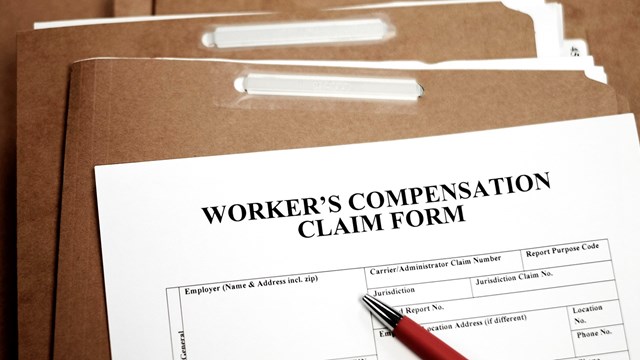In this and in future columns, I will be examining decisions of interest to co-op and condo boards and suggesting what valuable lessons can be learned from these legal decisions.
In one of its first decisions in 2004, the Appellate Division, Second Department, unanimously held that the well-known business judgment rule applies to a board of managers' decision to build a shed on the condominium's common area and thus, dismissed a complaining unit owners suit against the condominium. The unit owner was obviously not pleased by the structure and, in 1998, sued for injunctive relief and damages. The condominium raised the business judgment rule as a defense and later established that the board made the business decision "in good faith and within the scope of authority provided by the condominium's bylaws." As such, the condominium's business decision was insulated from judicial scrutiny.
The Merolo decision demonstrates that the business judgment rule is a terrific defense for cooperatives and condominiums that can put an end to lawsuits challenging board business decisions. Many boards, however, believe that the rule will automatically apply to all of their decisions and will insulate them from liability. If that were the case, lawsuits, such as Merolo, would not have proceeded for years (from 1998 to 2004) before being dismissed based upon the business judgment rule. Sometimes, early motion practice based upon the business judgment rule is possible and at other times, discovery is needed before a successful motion can be made to dispose of a case. In any event, the rule is a powerful defense for co-ops and condos.
Inc. v. Jenkins Lesson: When You Settle, Consider A Provision Covering Responsibility for Legal Fees And Costs Incurred in Enforcing Settlement Terms.
An Upper East Side cooperative almost got stuck paying its own legal fees and costs (over $40,000) to enforce a settlement that it had previously reached with a shareholder. The shareholder, Lindsay Jenkins, was allegedly subleasing her two apartments in violation of 178 East 80th Street Owners, Inc.'s proprietary lease. The cooperative and Jenkins ended up in federal court where a resolution was reached and memorialized in a settlement agreement.
When Jenkins violated the terms of the agreement, the co-op returned to court to enforce the settlement terms and incurred the $40,000 plus legal bill. The court recognized that the co-op was not claiming that Jenkins' conduct violated the proprietary lease and thus, the co-op could not take advantage of any attorney fee-shifting provision in the proprietary lease. Instead, the court was willing to apply a federal court rule authorizing the award of penalties when a party is in contempt of court. The court painfully analyzed each time entry in the legal bills, reducing some of the entries and eliminating others. The net result was an award of about $8,000 less than the total legal bills reviewed by the court.
In its decision, the court did not mention any provision in the settlement agreement requiring a breaching party to pay all of the non-breaching parties' legal fees and costs incurred to enforce the settlement terms. Many times such a provision can be valuable to a non-breaching party. Particularly, when a court is not willing to or cannot apply its contempt rules in the event of a breach. Fee-shifting provisions also may deter settling parties from breaching settlement terms.
In Fried, a unit owner complained that her condominium's board of managers violated her rights by placing certain conditions on its approval of her proposed construction of a greenhouse on her penthouse premises. In response to her alteration application, the board gave a conditional approval to her. The board shrewdly conditioned its approval upon Fried's submission of final plans to the board's architect to review and comment, and more significantly, upon the consent of Fried's neighbor. In other words, if the neighbor objected, Fried could not proceed.
Fried challenged the board's decision arguing that the board's conditions amounted to an unreasonable withholding of approval of the alteration. The Appellate Division, First Department, disagreed and held in favor of the board.
By allowing the board to condition an alteration on a potentially adversely affected neighbor's consent, the court obviously appreciated that the board was in a difficult position between neighbors with different interests. If the board had approved Fried's application without the consent condition, the unhappy neighbor may have sued the board. Either an outright approval or rejection of the application would be a losing proposition for the board. Someone would complain and/or sue. The 20 Sutton Place South, Inc. board found an interesting way out from in between its unit owners and the court approved it. Based upon Fried, boards have another option for dealing with these difficult decisions.
Many condominiums and cooperatives require their owners/shareholders to execute alteration agreements before altering their apartments. Such alteration agreements typically contain a provision stating that the owner/shareholder shall indemnify the condo/co-op in the event that damage happens as a result of the work covered by the agreement. The terms of the agreement can be drafted to permit more or less protection to the condo/co-op.
The Fifty-Fourth Street Condominium apparently required unit owner Jim Li Chen to execute an alteration agreement containing an indemnification provision before Chen's unit was altered. Sometime after the alteration, an air conditioner fell out of the third floor window of Chen's apartment and hit plaintiff Marilyn Spanbock. Spanbock sued the condo, Chen and others.
The condo sought to pass all liability for Spanbock's damages to Chen based upon the indemnification provision in the alteration agreement. The Appellate Division, First Department, put the brakes on that maneuver by holding that the condo is entitled to indemnification only if Spanbock's damages are a result of the work that was covered by Chen's alteration agreement. The court believed that it was premature to decide that issue in view of the indemnification provision in the agreement. Thus, the condo was trapped in the lawsuit for the long haul. With this in mind, alteration agreements should be drafted with an eye toward maximizing the protections afforded to the condo or co-op.







Leave a Comment